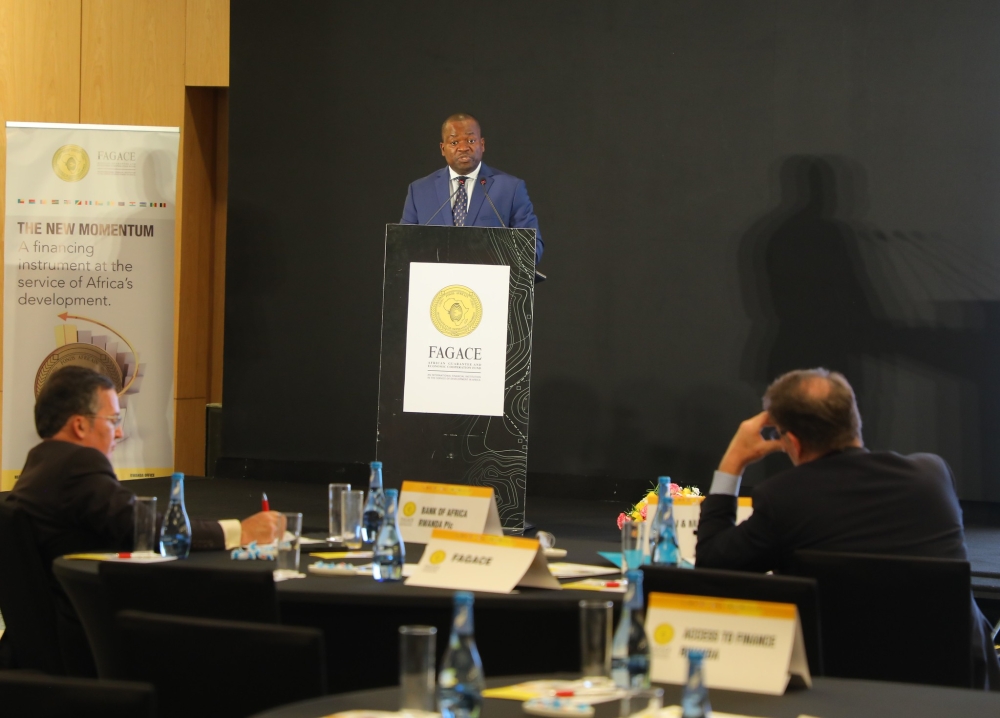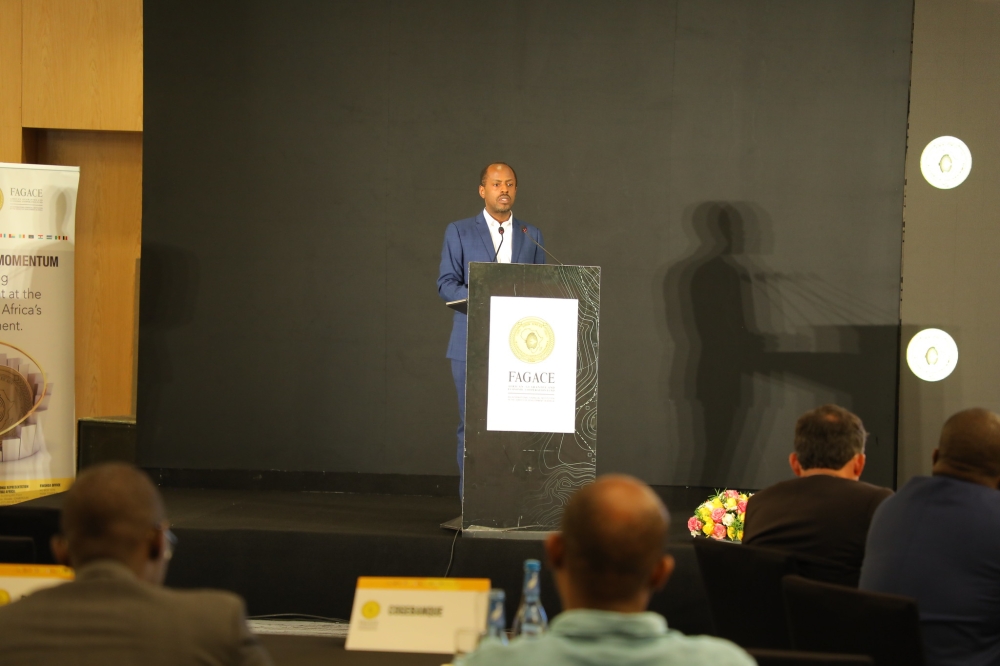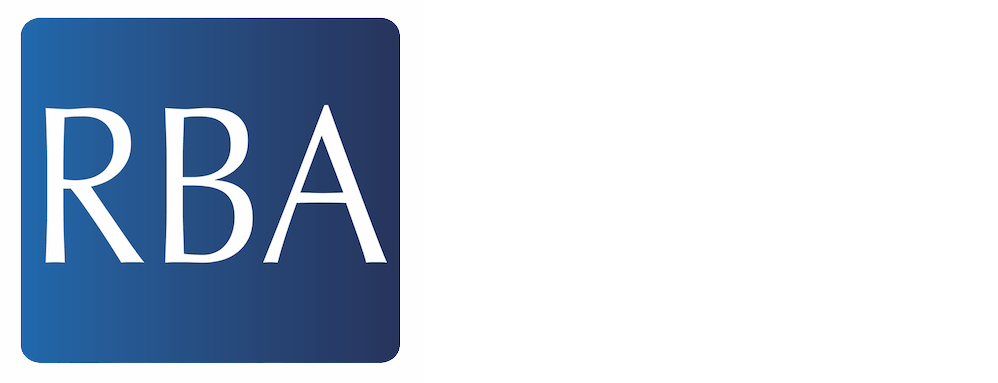L-R: Robin C. Bairstow, Chairperson Rwanda Bankers Association; Basile Tchakounte, principle advisor for cooperation and resource mobilisation at FAGACE; Emmanuelle Migan, director of operation and marketing at FAGACE; Erick Nkusi, country representative at FAGACE. / Photos by Craish Bahizi
The African Guarantee and Economic Cooperation Fund (FAGACE) has held a technical exchange session with representatives of different Rwandan banks and financial institutions to discuss collaboration areas in order to boost financing in Rwanda.
The session which happened on October 28 also aimed to present new orientations of the fund and tackle sharing of risks between banks and guarantors, particularly in the context of financing Small and Medium Enterprises (SMEs) as well as large investment projects in Rwanda.
Prior to the session, on October 27, FAGACE had a similar meeting with members of Rwanda’s private sector and presented to them its guarantee products that could benefit them while mobilising financing from financial institutions.
According to Basile TCHAKOUNTE, Principle Advisor for Cooperation and Resource Mobilization at FAGACE, SMEs are recognised as engines of economic growth, innovation, regional development and job creation, but they face many difficulties in accessing the bank financing needed to expand their operations.
He said that from the conclusions of several studies carried out, one of the major obstacles for private sector financing by banks is having adequate guarantees, declaring that in order to solve the issue, FAGACE offers two types of grantees; a portfolio guarantee given to the bank, helping them to address the issue of SMEs financing as well as individual guarantees the fund issue for a particular project that is referred to it by the bank.
TCHAKOUNTE also highlighted that so far, more than $4200 million has been mobilised for the benefit of the member states of the fund, including about $40 million in Rwanda in the strategic sectors of agro-industry, finance, industry, transport, building and energy.
He added: “In Rwanda, several projects have been identified and assessed; however, it should be noted that the level of achievements remains below the intended objectives. It has been proved necessary for us to reflect on the operating methods that could facilitate the Fund’s interventions in Rwanda in order to contribute to the country’s sustainable and inclusive economic growth.”
Robin C. BAIRSTOW, Chairman of Rwanda Bankers Association (RBA) said that FAGACE’s strategy to boost financing in Rwanda resonates with the wide national development plans to increase financing to the private sector despite recently-faced challenges due to Covid-19.
“To be able to this,” he continued. “It is essential for financial institutions to look into all available opportunities that can reduce contractive risks of financing different businesses and embrace those that’ll be passive to reimport financial inclusion in Rwanda.”
BAIRSTOW also noted that SMEs are the key drivers of the world economy and therefore, it is commendable to seek every opportunity that’ll reinforce credit readiness with a view to boosting growth in the world, Africa, and particularly in Rwanda.
He added: “We are glad to partner with FAGACE in improving financial inclusion in Rwanda and remain committed to partnering with likeminded institutions to achieve more together. Joint efforts are required by all key stakeholders in the private sector, ministries, agencies and development organisations to create proactive cooperation between all partners, to address identified market shortcomings and make up the gaps.”
Patrick HITAYEZU, Chief Economist at the Ministry of Finance and Economic Planning (MINECOFIN) said that it has been assessed that local manufacturing firms remain significantly and severely credit-constrained over the past twenty years.
“The banking sector we have today will have a role to play in alleviating the challenges related to credit constraint to make sure that the future growth of this country is more private sector-driven,” he said.
He said that one of ways of alleviating challenges related to the smallness of firms is through guarantee schemes; whether public or private, adding that the efforts are now being put on the private ones like FAGACE which he called an engine that alleviates constraints to the private sector finance.
Founded in 1977 in Kigali, FAGACE has 14 member states, including Rwanda. Its mission is to participate in economic and social development in the fight against poverty in its member states by facilitating the mobilisation of credits in favour of both private and public sectors.

Robin C. Bairstow, Chairperson Rwanda Bankers Association, gives his remarks during the event.

Basile Tchakounte, principle advisor for cooperation and resource mobilisation at FAGACE.

Patrick Hitayezu, chief economist at Minecofin.

Bank representatives and FAGACE officials pose for group photo.
